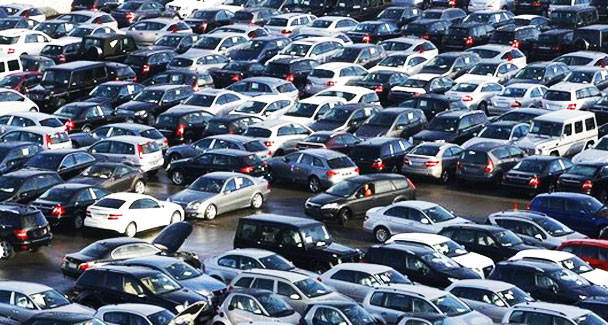The Excise, Taxation and Narcotics Control Department (Punjab) has unveiled a series of changes affecting the vehicle owners in the province for the fiscal year 2023. The changes include a reduction in registration fee for various categories of vehicles, an increase in the transfer fee for some vehicle categories, and a revision in how withholding taxes will be levied. The notification also clarifies the withholding taxes on vehicles based on filer status.
These changes were conveyed to Profit by Muhammad Asif, Director of the Motor Branch at the Excise, Taxation and Narcotics Control Department (Punjab).
Token tax based on engine displacement
Private vehicles will now pay token tax based on the engine displacement of the vehicle, instead of Rs 2,500 per seat.
Transfer fee hike
The transfer fee for some vehicle categories has also been increased from July 1, 2023. The new rates are as follows:
| Vehicle Category | Fee till June 30, 2023 | Fee from July 1, 2023 |
| Motorcycle, Scooter | Rs 150 | Rs 500 |
| Up to 1,000CC/Rickshaw | Rs 1,200 | Rs 2,500 |
| 1,000 to 1,800 CC | Rs 2,000 | Rs 5,000 |
| Above 1,800 CC | Rs 3,000 | Rs 10,000 |
| Commercial | Rs 4,000 | Rs 5,000 |
Rationale behind the increases in the transfer fee, and token tax revision
“As car production and sales dwindle, so too does the government’s revenue,” explained Aamir Younas. “Their solution? Hike up the existing rates,” he continued. “With the economy languishing, consumers are gravitating towards second-hand vehicles, rather than purchasing new cars. However, cars with an engine capacity below 1,000cc are considered essential items—not luxury items. This category will always generate some degree of deal flow, and the government aims to capitalise on that,” said Younas.
“Despite these measures, I remain sceptical about their efficacy in terms of revenue generation,” Younas added. “Even if people could earn an additional Rs 2 lakh to Rs 4 lakh by selling their cars, I don’t believe they will. Does it matter if your car has appreciated in value from Rs 10 lakh to Rs 20 lakh? It’s not due to anything inherent to your car; it’s merely a reflection of the inflation in the economy,” he elucidated. “Alternative cars have also become more expensive—so people are likely to retain their cars, reducing the efficacy of these increases. The luxury car market might operate under a different set of dynamics altogether,” said Younas.
“These increases are aimed at filling the gap. Unless the economy rebounds to stages similar in the recent past, there’s not going to be a year-on-year increase in revenues per se. At present, these increases only serve to fill the gap the government has observed in its revenues,” concluded Younas.
Registration fee cut
The registration fee for vehicles with engine capacities ranging from 1,501 cc to 2,000 cc has been reduced from 3% to 2%.
“The registration fee is something unique to the provinces.” Muhammad Awais, another Partner at EY Ford Rhodes, pointed out. “The issue with Punjab was that the registration fee on high-end and imported cars is higher than in Islamabad and Sindh,” Awais continued.
He stated that “people who bought such cars would register them in Islamabad or Sindh instead of Punjab.” He continued that “this reduced the vehicles and the token tax in Punjab.” He said that “all of this resulted in revenue losses for Punjab.”
He concluded that “the rate reduction is an attempt to harmonise registration fees with other territories.” He suggested that “all the provinces should charge a harmonised registration fee to avoid this issue.”
Withholding tax revision
The withholding tax rates for vehicles have also been revised based on engine displacement and filer status. The new rates are as follows:
| Engine Displacement | Till June 30,2023 | From July 1,2023 | ||
| Filer | Non-Filer | Filer | Non-Filer | |
| Up to 850 cc | Rs 10,000 | Rs 30,000 | Rs 10,000 | Rs 30,000 |
| 851cc-1,000cc | Rs 20,000 | Rs 60,000 | Rs 20,000 | Rs 60,000 |
| 1,001cc-1,300cc | Rs 25,000 | Rs 75,000 | Rs 25,000 | Rs 75,000 |
| 1,301cc-1,600cc | Rs 50,000 | Rs 150,000 | Rs 50,000 | Rs 150,000 |
| 1,601cc-1,800cc | Rs 150,000 | Rs 450,000 | Rs 150,000 | Rs 450,000 |
| 1,801cc-2,000cc | Rs 200,000 | Rs 600,000 | Rs 200,000 | Rs 600,000 |
| 2,001cc-2,500cc | Rs 300,000 | Rs 900,000 | 6% of Value | 18% of Value |
| 2,501cc-3,000cc | Rs 400,000 | Rs 12 lakh | 8% of Value | 24% of Value |
| Above 3,000cc | Rs 500,000 | Rs 15 lakh | 10% of Value | 30% of Value |
“The withholding tax is a federal levy,” explained Awais. He further stated that “the change in the withholding tax is part of the income tax which is applicable on all of Pakistan.” He told Profit that “whatever withholding tax applies in Lahore will also apply in Karachi and other cities.”
Sign of times to come?
“Considering the fiscal pressure on the Federation, the provinces have to generate resources on their own,” observed Waqar Zafar — another Partner at EY Ford Rhodes.
He suggested that “reduced rates for electric vehicles, and hybrid vehicles should be introduced. Higher rates for higher cc vehicles and non-filers are good initiatives.” “Maybe the higher rates should be increased more to discourage their use,” posited Zafar. He concluded that “provinces have to start generating resources of their own.”

























Taxation is necessary, but it should be less percentage. Any new govt come it change the policy it effect the developments. more